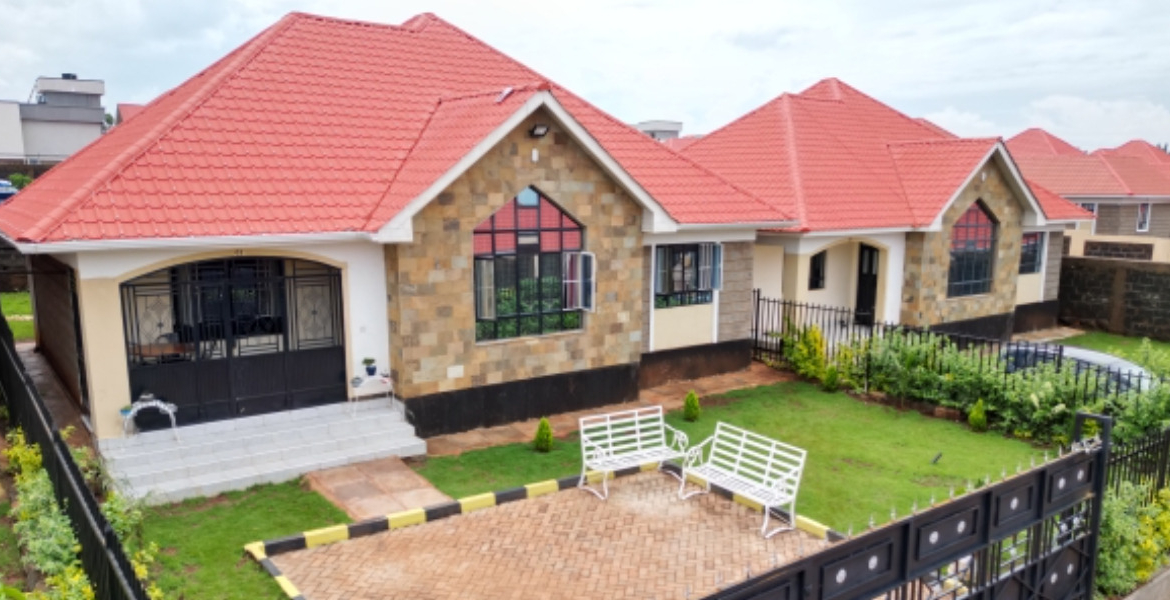Kenyan Diaspora Investors Defrauded in Expanding Real Estate Scams

A growing number of real estate schemes in Kenya are defrauding investors, particularly those residing in the diaspora, eager to invest in their home country.
Enticed by the prospect of secure investments, these individuals are losing substantial sums of money to deceptive marketing practices, questionable land acquisitions, and disappearing developers, resulting in protracted legal battles and financial losses. Today, unscrupulous developers exploit the trust and patriotism of Kenyans living abroad, promising dream homes that never materialise.
Willstone Homes Faces Scrutiny Amidst Investor Grievances
Willstone Homes Limited is one such company facing significant controversy. The developer marketed an ambitious project, Manna Residence, specifically targeting Kenyans in the United States. Julius Njeru, a US resident, invested Sh8.95 million in a three-bedroom bungalow with a servant's quarter in Ruiru, drawn in by an alluring marketing video on the Kenya Diaspora Media YouTube channel, owned by Jeremy Damaris. The channel portrayed Willstone Homes as a reliable entity capable of fulfilling its promises.
Njeru made an initial deposit of Sh2 million, with the remaining balance scheduled for payment in 15 monthly instalments. However, construction never commenced, and the developer's explanations were inconsistent and raised red flags. To verify his investment, Njeru hired a private investigator and an advocate. Their investigation revealed that the land on which his property was supposed to be built was owned by Majik Consultancy Limited, a critical detail Willstone Homes had failed to disclose.
Njeru withdrew from the deal, but Willstone Homes initially offered a refund of less than two percent of the total purchase price. After extensive negotiations, Njeru finally received his full refund in March of the previous year. Another investor, Joseph Kiiru, also faced similar issues with Willstone Homes. In March 2022, Kiiru entered into a purchase agreement for a three-bedroom bungalow worth Sh8.2 million, paying Sh4.2 million upfront.
The contract stipulated that construction would begin within 90 days. However, work did not start until a year later, far exceeding the agreed-upon timeframe. When Willstone Homes demanded the remaining balance, threatening to sell the property to another buyer, Kiiru filed a lawsuit, arguing that the company had already breached its contractual obligations. The Ruiru Law Courts issued an interim order, preventing the developer from transferring the property until the matter is resolved. The case is scheduled for a hearing on June 20.
Connections to Troubled Banda Homes Emerge
Investigations have uncovered disturbing connections between Willstone Homes and Banda Homes Limited, another real estate company that collapsed, allegedly disappearing with Sh5 billion in investor funds after failing to deliver promised housing units. Ejidio Kinyanjui, who previously managed Banda Homes, now leads Willstone Homes. Other directors linked to the troubled developer include Thuo Marigi and Victor Muusya, who have been involved in internal legal disputes over control of the company.
Mahiga Homes: Another Victim of Abandoned Promises
Nearby, Mahiga Homes' Rock Gardens 2 project stands as another example of a failed real estate venture. Marketed as a thriving gated community, the development was abandoned after investors had already made substantial payments. Investors allege that directors Patrick Muchoki and Joseph Ruhiu pocketed millions, leaving buyers with unbuilt plots and uncertain futures.
Among those affected is Cynthia Mwanthi, a retired teacher who invested Sh5.5 million in a three-bedroom home. Instead of settling into her retirement dream house, she found an empty plot overgrown with vegetation. Despite multiple attempts to seek redress, she has been unable to recover her funds. The directors of Mahiga Homes have remained largely unresponsive. Another victim, Joseph Mungai, paid Mahiga Homes a similar amount in 2019 for a similar property, expecting a peaceful homecoming after years of living abroad. The envisioned seven-acre gated estate now lies abandoned, transformed into an untamed thicket.
Marketing Influencers Under Scrutiny for Role in Luring Investors
A common thread among these fraudulent schemes is their aggressive online marketing, particularly through Kenya Diaspora Media, where investment pitches are tailored to Kenyans living abroad. Jeremy Damaris, the channel's anchor, has played a significant role in attracting diaspora investors to questionable projects, often under the guise of assisting them in navigating property ownership in Kenya.
Damaris has presented Mahiga Homes as a trustworthy entity, assuring investors that their money was secure. However, as lawsuits mount and projects collapse, the ethics of real estate influencers who endorse developers without verifying their financial stability or ability to deliver are being questioned.
Urgent Need for Regulatory Reform
The surge in real estate fraud in Kenya affirms the critical need for stricter regulatory measures. While off-plan housing offers an attractive investment model, it remains highly vulnerable to exploitation by unscrupulous developers. The lack of oversight allows firms to collect substantial amounts from unsuspecting clients, only to abandon projects. Potential buyers, particularly those in the diaspora, must exercise due diligence and seek independent verification before making any commitments.








Comments
Do you ever print comments?
Permalink
Do you ever print comments?
Add new comment